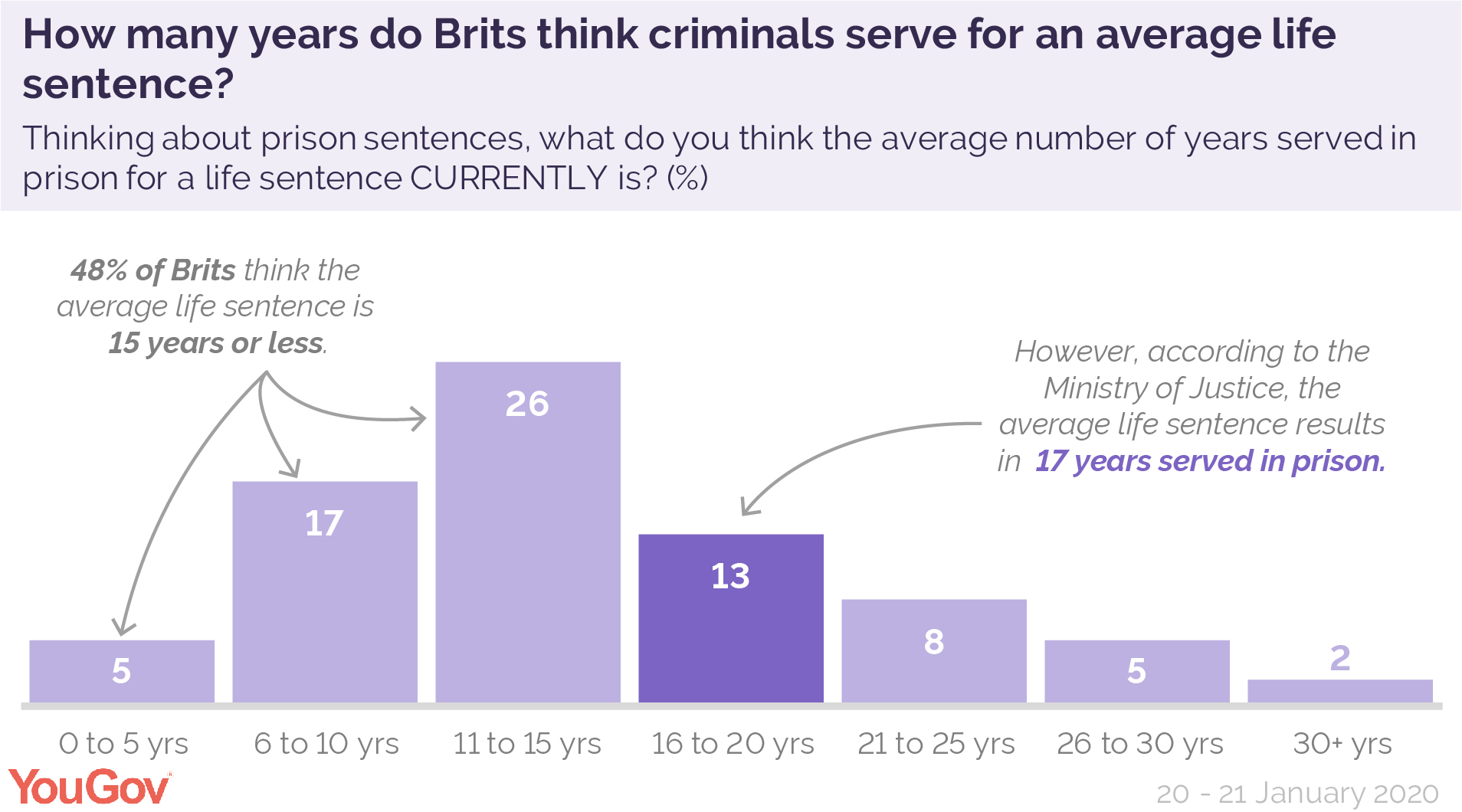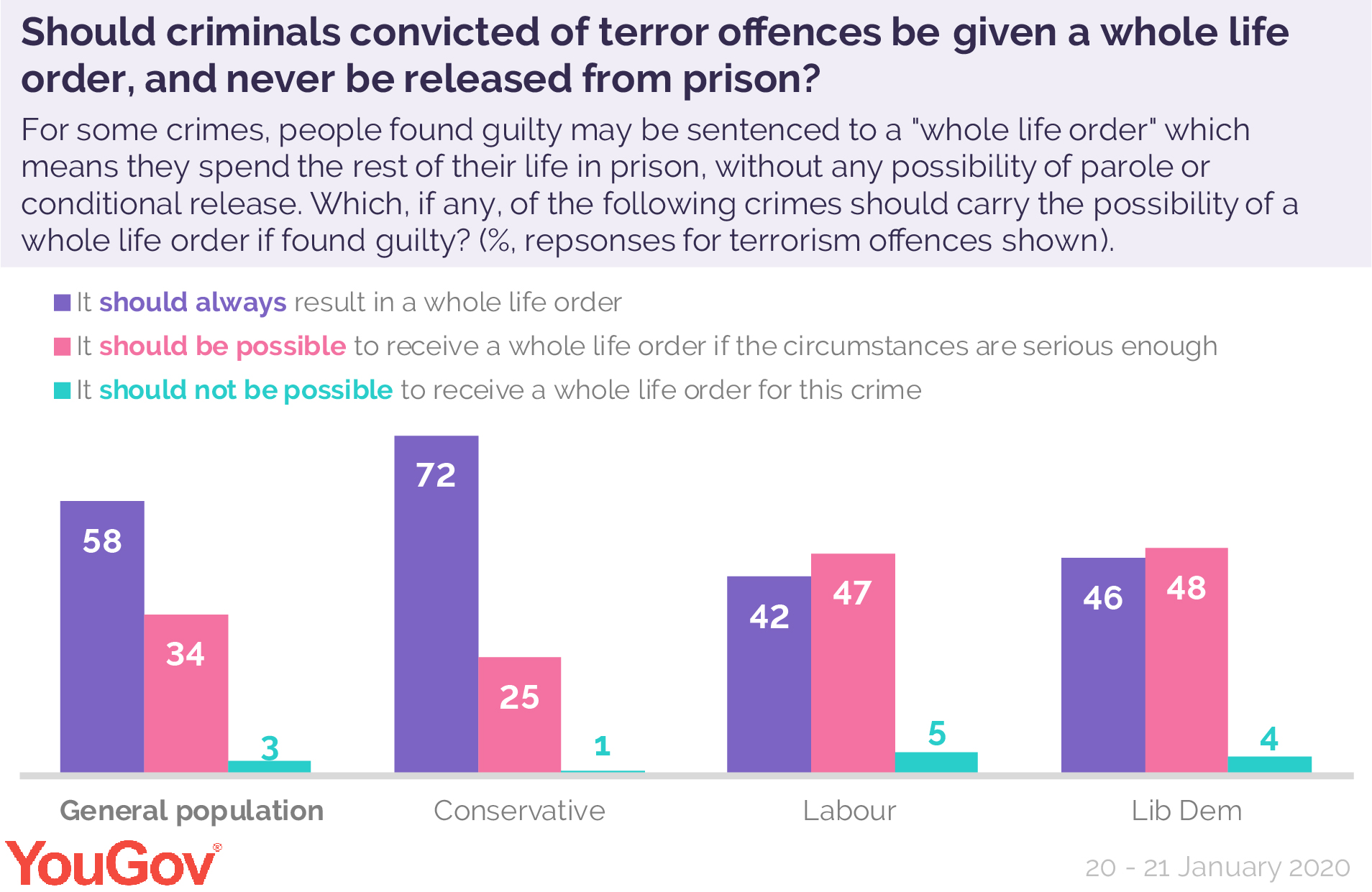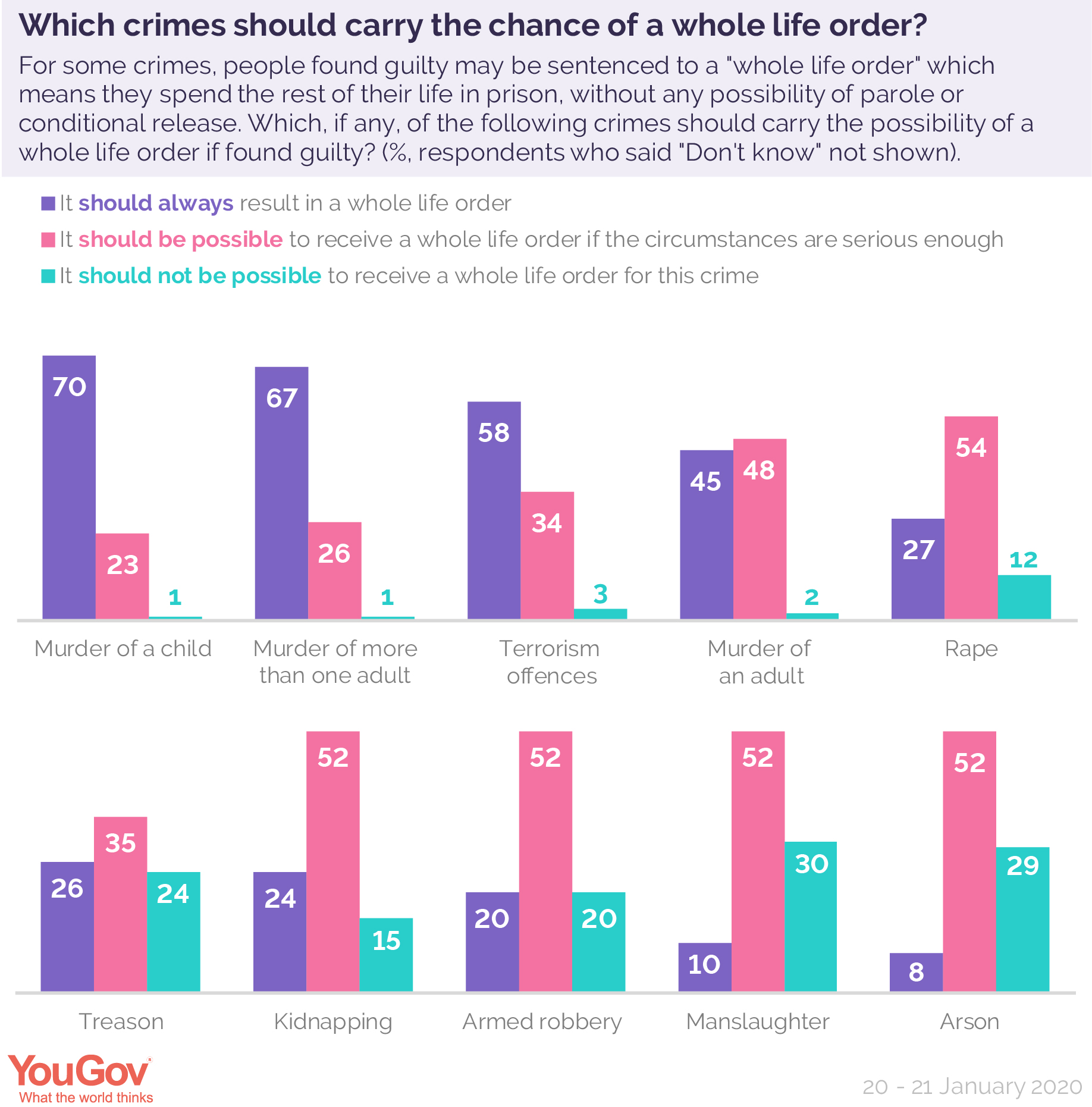Nearly half of Britons believe that the average “life sentence” equates to just 15 years in prison
Boris Johnson has promised to reform how the most serious offenders, including convicted terrorists, are punished – but most Britons believe they should simply never be released from prison.
How long is a life sentence?
YouGov polling shows that nearly half of Britons underestimate how long offenders spend behind bars when handed a life sentence. Almost half (48%) say the average number of years served for a life sentence is 15 or less.
In reality, prisoners serve an average of 17 years, according to the Ministry of Justice. Just 13% of Britons were roughly correct in their estimates.
Conservative Party voters are the most likely to underestimate the length of the average life sentence, with over a quarter (28%) putting it at 10 years or less, compared to 22% of Labour voters.
However, a life sentence is not the most serious judicial punishment available in Britain. Under English and Welsh law criminals can be sentenced to a whole life order (WLO), which means the convict will never be eligible for early release or parole, and will likely never leave prison.
Our research shows that Britons say this harshest of punishments should be made mandatory for some crimes.
What sentence should terrorism carry?
Looking specifically at terror offences, just over half (58%) of Britons say that anyone convicted of a terror offence should always be handed a WLO and never leave prison.
A third (34%) say a WLO should be a possible sentence, but only used if the crime is serious enough.
Among those who voted Conservative in the last general election, 97% say terror offences should carry the possibility of a WLO, and the majority (72%) say criminals convicted of a terror offence should always be given a WLO for their crimes.
Labour voters, on the other hand, are split over whether convicted terrorists should ever be released, with 42% in favour of a compulsory WLO for offenders compared to 47% who think the harshest sentence should be considered but not mandatory.
What other crimes should result in life imprisonment according to Brits?
Most Britons say a WLO should be considered for all of the crimes we asked about, and in some cases should be the mandatory sentence.
In the 1960’s Ian Brady and Myra Hindley received WLOs for the “moors murders” of several children, and the vast majority of the public agree that the murder of children should result in a lifetime spent behind bars.
Nine in ten (93%) think the crime should at least carry the risk of resulting in a WLO, with 70% saying it should always be punished with a WLO.
Multiple murders should also always result in a WLO according to 67% of Britons – however only 10% think manslaughter should as well, with 52% saying it should be a possible sentence and three in ten (30%) saying manslaughter should never result in a WLO.
A quarter of British adults (27%) also think that those on trial for rape should be sentenced to a WLO if found guilty, no matter the circumstances, and another 54% think it should be a possible sentence if the offence is serious.
Following a change in the law in 1998 the punishment for treason was changed from mandatory capital punishment to the possibility of a WLO, and 26% of Britons say that the life behind bars with no chance of release should be the minimum punishment for this offence.
Image: Getty


 Click to enlarge
Click to enlarge Click to enlarge
Click to enlarge Click to enlarge
Click to enlarge







